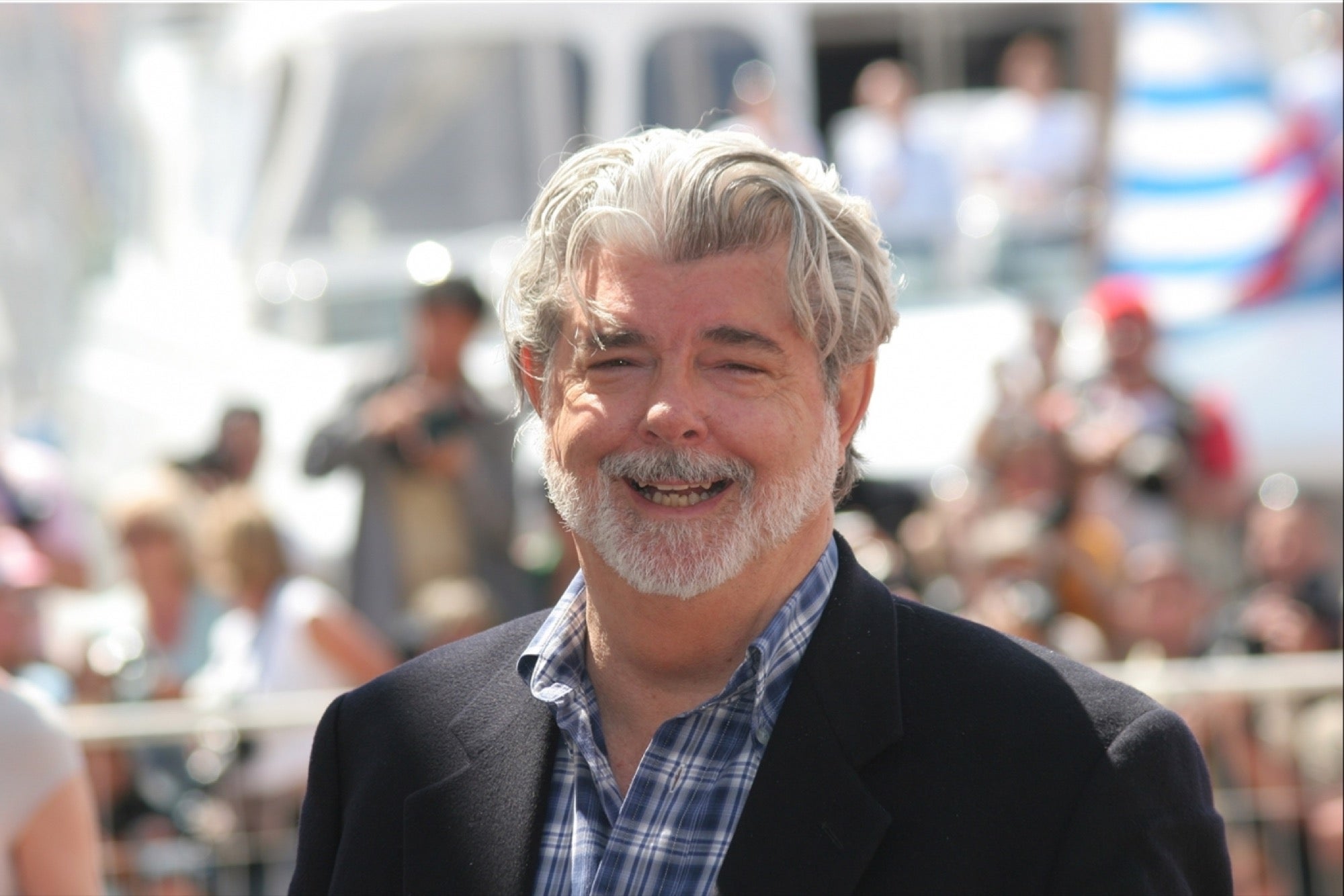The Entrepreneurial Genius of 'Star Wars' Three lessons and warnings from the career of George Lucas
By Jeff Goins Edited by Dan Bova
Opinions expressed by Entrepreneur contributors are their own.

This week marks the beginning of a new era for a whole new generation of soon-to-be Star Wars fans, including my three-year--old son. As a fan myself, I'm a little wary. I haven't yet seen The Force Awakens, but my hope is that director J.J. Abrams will bring back some of the genius that in more recent years was lost in a galaxy far, far, away.
Related: New Star Wars Film Is a Marketing Force Brands Should Study
As a writer and entrepreneur, I am fascinated with the way creative breakthroughs happen, especially when they lead to large-scale commercial success. But when we look at the story of Star Wars, we see three clear lessons for entrepreneurs that George Lucas seems to have forgotten all these years later in his career.
1. Never stop taking risks.
George Lucas was a renegade film student from California who refused to tie himself to a single genre. He believed in the magic of movie-making and wanted to share that passion with the world. But he began as a very experimental director.
After film school, Lucas served as an assistant under Francis Ford Coppola, director of The Godfather, and the two became friends. Together, they partnered on projects for the rest of their lives. Lucas next created THX 1138, a low-budget dystopian film, followed by American Graffiti, a coming-of-age film set in the summer of 1962 and based on his teenage years. Then came Star Wars.
Lucas kept experimenting until he found something that stuck, and therein lies an important lesson. The trick is to figure out how to keep this edge and not lose it after success arrives. Later, Coppola reflected in an interview on his friend's success, saying, "George Lucas was a very experimental crazy guy, and he got lost in this big production and never got out of it. I still hope that he made so much money out of it that he will just make some 'little' movies."
2. Use your constraints.
At a time when Stanley Kubrick's 2001: A Space Odyssey was setting the standard for special effects, Lucas worried about his lack of resources for making his third film. In fact, he was so insecure about the graphics in Star Wars that he made a lot of quick cuts so the audience wouldn't notice.
In fact, this was part of the charm of Star Wars: the mystery. "The greatest strength of "Star Wars,'" Chris Talyor wrote in How Stars Wars Conquered the Universe, "is what it doesn't tell you." Light sabers. The Force. The vague powers of good and evil.
All of this served to create something more memorable and meaningful for millions of people than the over-the-top computer-animated graphics we saw in the more recent films.
Conversely, what made the prequels far less compelling is that there were no constraints. The unlimited budget and abundant technology somehow worked against Lucas' vision, leading to a trilogy that left many feeling underwhelmed.
Related: Stop What You're Doing: A New 'Star Wars' Trailer Just Dropped
When it comes to obstacles, we must be wary of the temptation to believe that "more" necessarily means "better." More money, more technology, more staff -- these can lead to greater success, but sometimes they don't. So, use what you have, even if it embarrasses you, and when you have no constraints, create them.
Director J.J. Abrams, for example, is using mostly practical effects for the new Star Wars film, in lieu of the traditional CGI that clutters so many movies today.
3. Listen to your customers.
After finally reshaping Star Wars into his original vision and then releasing three prequels that upset more than a few fans, George Lucas said he wouldn't make another Star Wars film, admitting his frustration at getting criticized no matter what he did.
One documentary, The People vs. George Lucas, details the discontent with the man who both created, and in some people's minds, destroyed, Star Wars. The lesson here is simple: Don't forget where you came from. Don't get so big that you distance yourself from your customers. Creativity is a communal effort, and a business cannot thrive without understanding what the market wants.
The truth is, I have the utmost respect for George Lucas. He created the biggest film franchise ever, changed my childhood and launched several projects that changed the film industry, including a little studio called Pixar. But I can't deny my disappointment with some of his later work. My secret hope is that Abrams will reconnect us to that original spirit that made this Lucas-created franchise great in the first place.
The takeaway for entrepreneurs and creatives alike is clear: Don't forget your roots, and don't get too comfortable. What got you here just might be what sustains your success for generations to come.
Related: What Small Business Can Learn From Force of the Star Wars Marketing Blitz







